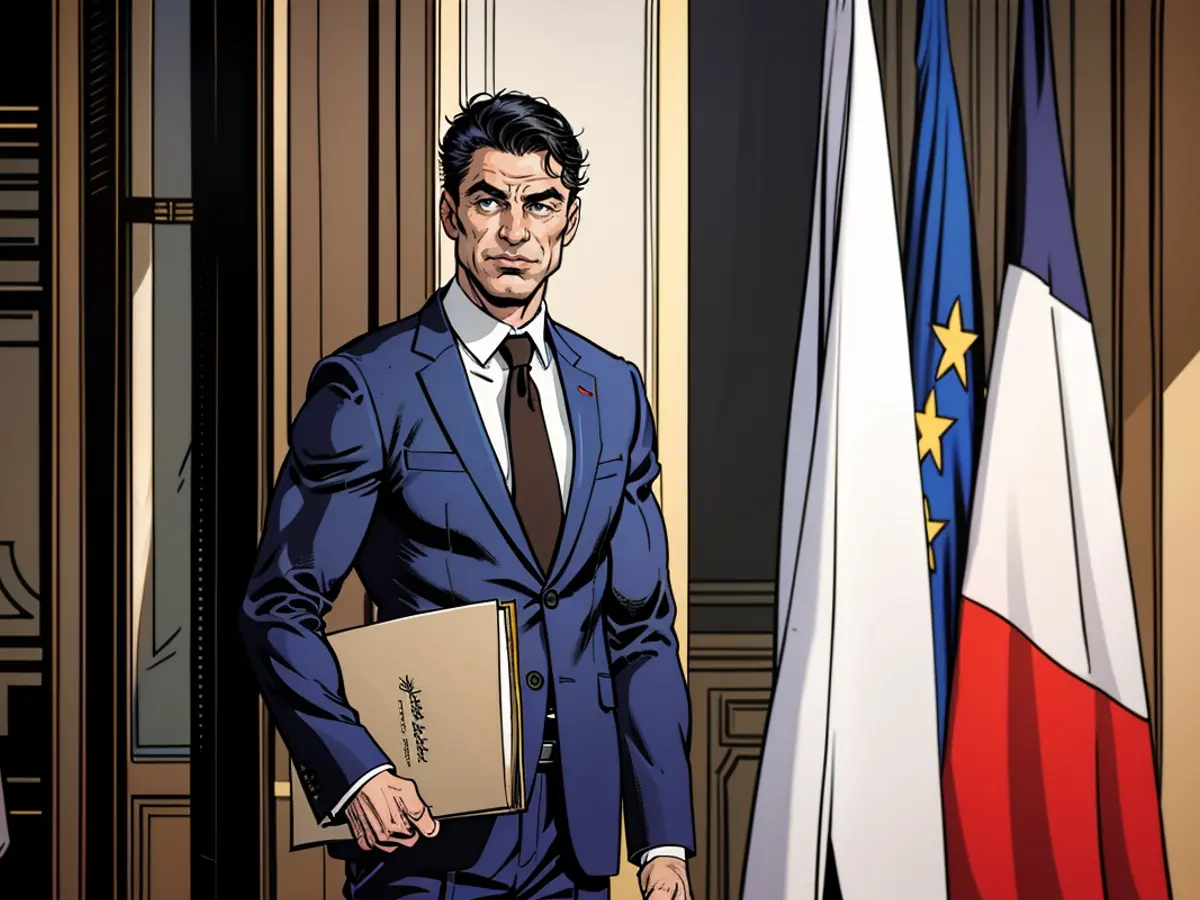Macron accepts French PM’s resignation, with no clear successor in sight
Attal offered to step down last week after Macron’s centrist Ensemble alliance was defeated in the second round of France’s snap parliamentary election, but the president refused, asking him to stay on for a short period to maintain stability.
Eight days later, Macron accepted Attal’s resignation after a meeting at the Elysee in Paris, but once again asked him to remain in post until a new government forms, meaning France remains in political limbo, with no clear successor in sight.
“In order for this period to end as quickly as possible, it is up to Republican forces to work together to build unity around projects and actions in the service of the French people,” the Elysee said in a statement.
The French constitution states that the president appoints a new prime minister, but it does not detail how nor the timeframe within which they must do so.
Until a new government is appointed, a caretaker government sits in place, able to respond to emergencies but not empowered to enact any legislative reforms.
Separately, French lawmakers will meet Thursday to elect the president of the National Assembly, in two votes requiring a majority of the 577-seat body. If the first two votes don’t elect someone, the candidate with the largest support in parliament will be selected in a third vote.
Following their resignation, Attal and his fellow ministers who are lawmakers will be allowed to vote in the election of the National Assembly president, potentially providing key ballots in the divided body.
The assembly president holds a position comparable to the speaker of the House of Representatives, organizing the legislative agenda and steering the appointment of key commission posts.
No obvious successor
While Attal’s resignation paves the way for Macron to appoint a successor, there is no obvious candidate to replace him. The newly elected National Assembly looks set to be gridlocked after the second round of voting delivered a hung parliament.
Although the election was inconclusive, it was heralded as a victory for the French mainstream and a measure of voters’ overwhelming desire to keep the far right from gaining power.
Marine Le Pen’s National Rally (RN) party had taken a commanding lead in the first round, stirring fears that France could be on the cusp of electing its first far-right government since the collaborationist Vichy regime of World War II.
But, after a week of political bargaining that saw more than 200 centrist and left-wing candidates withdraw to avoid splitting the vote, the RN slumped to third place in the second round. In a shock result, the left-wing New Popular Front (NFP) alliance won the most seats of any bloc.
It is customary for the French president to appoint a prime minister from the largest group in parliament. But it is still not clear from which party within the NFP this will be.
The hastily assembled alliance, which formed just days after Macron called the election last month, comprises several parties straddling vast ideological ground, from the hard-left France Unbowed party to the more moderate Socialist Party and Place Publique.
But, more than a week after the vote, the alliance has still not put forward a prime ministerial candidate, in a potential sign of the divisions within the capacious – and potentially fractious – coalition
France Unbowed won the most seats of any party within the NFP, and so might have been expected to be called on to put forward a candidate to succeed Attal. But Macron’s allies have repeatedly said they will not work with its leader, the populist firebrand Jean-Luc Mélenchon, saying his party is just as extreme – and therefore unfit to govern – as the RN.
Even if Macron does appoint a prime minister from the NFP, the party will still need to enter into yet another coalition – likely with Ensemble – in order to pass laws.
Another option is a “technocratic” government. Macron is not constitutionally obliged to appoint a prime minister from the largest bloc, and so could call on a candidate outside of mainstream politics to manage day-to-day matters. Italy took this option when it appointed Mario Draghi, the former head of the European Central Bank, to run its government.
After the defeat in the French parliamentary election, discussions about a new prime minister began, considering the left-wing New Popular Front (NFP) as a potential choice due to winning the most seats. However, Macron's allies have expressed reservations about working with the populist leader of France Unbowed, Jean-Luc Meleenchon, within the NFP. Therefore, the possibility of a "technocratic" government, with a candidate outside of mainstream politics, also arises in the context of European and global political landscapes.







